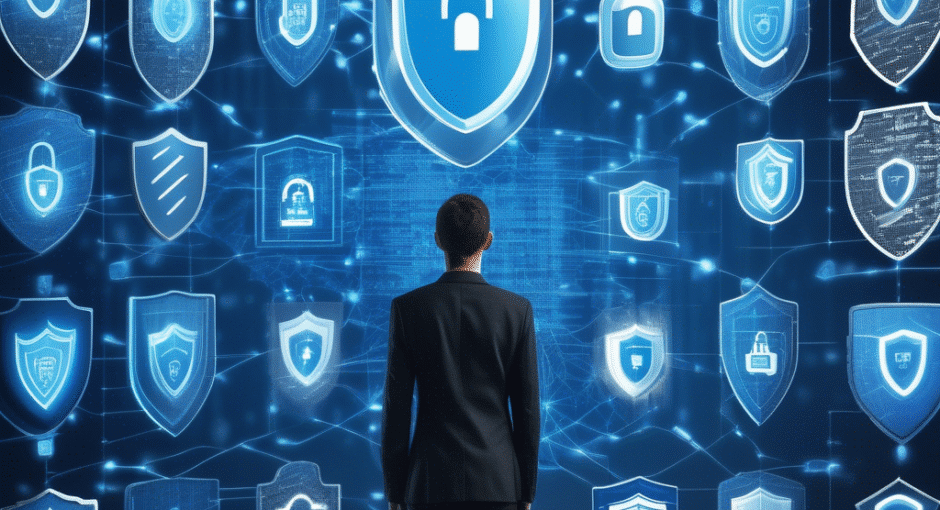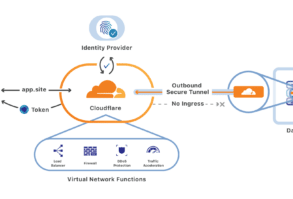In today’s digital landscape, cybersecurity has become an essential part of our daily lives. With the ever-increasing threats and risks lurking in the cyber world, it is crucial for end users to stay vigilant and take proactive measures to protect themselves. This article aims to provide you with essential cybersecurity daily tips to safeguard your digital world, emphasizing the importance of cybersecurity education in empowering users to stay secure. By staying one step ahead and implementing proactive measures, we can ensure end user security in the cyber age. So, whether you’re a college student, a working professional, or simply someone who values their online privacy, read on to discover how you can protect yourself from cyber threats and navigate the digital world with confidence.
- 1. "Essential Cybersecurity Daily Tips for End Users: Safeguarding Your Digital World"
- 2. "The Importance of Cybersecurity Education: Empowering Users to Stay Secure"
- 3. "Stay One Step Ahead: Proactive Measures for End User Security in the Cyber Age"
1. "Essential Cybersecurity Daily Tips for End Users: Safeguarding Your Digital World"
In today’s digital age, cybersecurity has become a paramount concern for individuals and organizations alike. With the increasing prevalence of cyber threats such as data breaches, malware attacks, and phishing scams, it is crucial for end users to take proactive measures to safeguard their digital world. By following these essential cybersecurity daily tips, you can enhance your online security and protect your sensitive information from falling into the wrong hands.
1. Keep Your Devices Updated: Regularly updating your operating systems, software, and applications is one of the most effective ways to prevent cyber attacks. Software updates often include patches and fixes for known vulnerabilities, ensuring that your devices are equipped with the latest security measures.
2. Use Strong and Unique Passwords: Creating strong and unique passwords for all your online accounts is a fundamental step in securing your digital presence. Avoid using common or easily guessable passwords, and consider using a password manager to generate and store complex passwords securely.
3. Enable Two-Factor Authentication (2FA): Two-factor authentication adds an extra layer of security to your online accounts by requiring a second form of verification, such as a text message code or biometric authentication. Enable 2FA whenever possible to protect your accounts from unauthorized access.
4. Be Cautious of Phishing Scams: Phishing emails and messages continue to be a prevalent method used by cybercriminals to trick users into revealing sensitive information. Be vigilant when opening emails or clicking on links, and never provide personal or financial information unless you are certain of the sender’s authenticity.
5. Practice Safe Browsing Habits: When browsing the internet, be cautious of malicious websites and avoid clicking on suspicious links or downloading files from untrusted sources. Utilize a reputable antivirus software and enable browser extensions that provide additional security against known threats.
6. Regularly Back Up Your Data: Data loss can occur due to various reasons, including malware attacks, hardware failures, or accidental deletion. Regularly backing up your important files and data ensures that even if a security incident occurs, you can restore your information and minimize the impact.
7. Educate Yourself on Cybersecurity: Stay informed about the latest cybersecurity threats and best practices by reading reputable sources, attending webinars, or participating in cybersecurity training programs. Education is key to staying ahead of evolving cyber threats and protecting yourself effectively.
By implementing these cybersecurity daily tips, you can significantly reduce the risk of falling victim to cyber attacks and safeguard your digital world. Remember, cybersecurity is a collective responsibility, and by prioritizing end user security and investing in cybersecurity education, we can create a safer online environment for everyone.
2. "The Importance of Cybersecurity Education: Empowering Users to Stay Secure"
The digital landscape is constantly evolving, and with it comes an increased risk of cyber threats. As technology becomes more integrated into our daily lives, it is essential for individuals to prioritize their cybersecurity. One of the most effective ways to achieve this is through cybersecurity education.
Cybersecurity education plays a crucial role in empowering users to stay secure in the digital world. By equipping individuals with the knowledge and skills necessary to protect themselves and their data, cybersecurity education helps to create a safer online environment for everyone.
End user security is often the weakest link in the cybersecurity chain. Many cyberattacks exploit the vulnerabilities of individuals who are not aware of the various threats lurking online. By educating users about the common tactics used by cybercriminals, such as phishing emails, social engineering, and malware, they can become more vigilant and less likely to fall victim to these attacks.
Furthermore, cybersecurity education helps users understand the importance of implementing strong security practices. This includes creating complex and unique passwords, using multi-factor authentication, regularly updating software and operating systems, and being cautious while accessing public Wi-Fi networks. By educating users about these best practices, they become proactive in protecting themselves and their digital assets.
Another significant aspect of cybersecurity education is raising awareness about the potential consequences of a cyberattack. Users need to understand that a single click on a malicious link or a weak password can have far-reaching consequences, including financial loss, identity theft, and reputational damage. By emphasizing the real-life impact of cyber threats, individuals are more likely to take their cybersecurity seriously.
In addition to empowering individual users, cybersecurity education also benefits organizations and society as a whole. When users are educated about cybersecurity, they become more responsible digital citizens. They not only protect themselves but also contribute to creating a safer online community by avoiding activities that could compromise the security of others.
To ensure the effectiveness of cybersecurity education, it is important to make it an ongoing process. Cyber threats are constantly evolving, and new tactics are being developed every day. Therefore, individuals need to stay updated with the latest trends in cybersecurity and adapt their security practices accordingly.
In conclusion, cybersecurity education is of paramount importance in today’s digital age. By empowering users with knowledge about cyber threats and best security practices, we can create a more secure online environment for everyone. It is not only the responsibility of individuals, but also organizations, educational institutions, and governments to prioritize cybersecurity education and make it accessible to all. Together, we can build a more resilient and secure digital future.
3. "Stay One Step Ahead: Proactive Measures for End User Security in the Cyber Age"
In today’s cyber age, where threats are constantly evolving and becoming more sophisticated, it is crucial for end users to stay one step ahead in terms of security. Taking proactive measures to protect our devices, data, and personal information is essential in minimizing the risks associated with cyber attacks. By adopting a proactive approach to cybersecurity, end users can significantly enhance their overall security posture and reduce the likelihood of falling victim to cyber threats.
One of the most important proactive measures for end user security is to prioritize cybersecurity education. It is essential for individuals to stay informed about the latest threats, attack techniques, and best practices for staying safe online. Cybersecurity education can empower end users with the knowledge and skills needed to identify potential risks, avoid common pitfalls, and make informed decisions when it comes to protecting their digital assets.
Regularly updating software and operating systems is another proactive measure that can significantly enhance end user security. Software updates often include patches and fixes for vulnerabilities that could be exploited by cybercriminals. By keeping our devices and software up to date, we can minimize the chances of falling victim to known vulnerabilities and ensure that we have the latest security features in place.
Implementing strong and unique passwords for all online accounts is another proactive measure that can greatly enhance end user security. Weak passwords are one of the easiest ways for hackers to gain unauthorized access to our accounts and personal information. By using a combination of uppercase and lowercase letters, numbers, and special characters, as well as avoiding common password patterns, we can create strong and resilient passwords that are difficult to crack.
Enabling two-factor authentication (2FA) is another proactive measure that can provide an additional layer of security for end users. 2FA adds an extra step in the login process, requiring users to provide a second form of verification, such as a unique code sent to their mobile device, in addition to their password. This adds an extra layer of protection, even if an attacker manages to obtain the user’s password.
Regularly backing up important data is yet another proactive measure that can help protect end users from data loss and ransomware attacks. By regularly backing up our data to an external hard drive, cloud storage, or other secure locations, we can ensure that even if our devices are compromised, we can easily restore our important files and minimize the impact of a potential cyber attack.
In conclusion, staying one step ahead of cyber threats requires a proactive approach to end user security. By prioritizing cybersecurity education, regularly updating software, using strong and unique passwords, enabling two-factor authentication, and regularly backing up data, end users can significantly enhance their security posture and minimize the risks associated with cyber attacks. In this cyber age, where threats are constantly evolving, it is essential for individuals to take responsibility for their own security and stay informed about the best practices for staying safe online.
In today’s digital age, cybersecurity has become an essential aspect of our daily lives. As end users, it is crucial that we take proactive measures to safeguard our digital world and stay one step ahead of cyber threats. By following the essential cybersecurity daily tips discussed in this article, we can significantly reduce the risk of falling victim to cyber attacks.
Education plays a vital role in empowering end users to stay secure. Understanding the importance of cybersecurity education enables us to make informed decisions when it comes to protecting our digital assets. By staying informed about the latest threats and best practices, we can build a strong defense against cybercriminals.
To stay one step ahead in the cyber age, it is essential to adopt a proactive approach to end user security. This means regularly updating our devices and software, using strong and unique passwords, being cautious of suspicious emails and links, and regularly backing up our data. By implementing these proactive measures, we can minimize the impact of potential cyber attacks and ensure the safety of our digital lives.
In conclusion, cybersecurity is a shared responsibility. As end users, we must prioritize our own security by following daily tips, educating ourselves, and taking proactive measures. By doing so, we can create a safer digital environment for ourselves and contribute to a more secure cyber world. Stay informed, stay vigilant, and stay secure.






